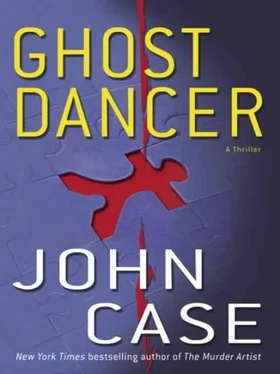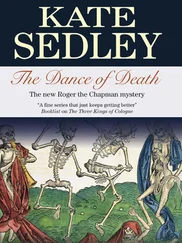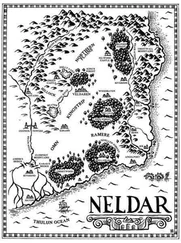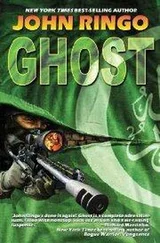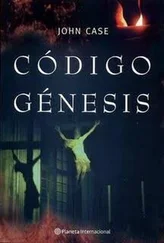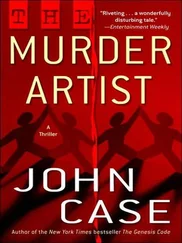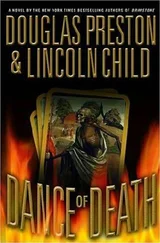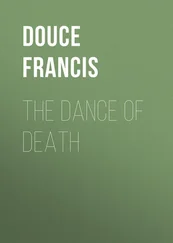Then… Wounded Knee. Winter of 1890. Sitting Bull, an advocate of the Ghost Dance and the most renowned of all Sioux chieftains, had just been assassinated by government agents. Fearing an insurrection, the 7th Cavalry (General Custer’s old regiment) was sent to arrest Indian “agitators” in South Dakota. To escape arrest, a band of Lakota made their way by night through the Badlands. Their aim was to find shelter and protection on the Pine Ridge reservation.
The army tracked them, and forced the Lakota to the banks of Wounded Knee Creek. Surrounded and outnumbered, the Lakota displayed a white flag, signaling their surrender. While the Indians’ leaders were being interrogated, the order was issued to confiscate the Indians’ weapons. According to contemporary accounts, some of the Indians began singing Ghost Dance songs. A medicine man threw a handful of dirt in the air, which some of the soldiers (drunk) imagined to be a signal. A gun went off, and though the shot hit no one, the cavalry opened fire en masse. Four Hotchkiss cannons, positioned on a hill overlooking the encampment, each capable of firing fifty explosive rounds a minute, loosed a murderous barrage.
Hundreds of Lakota – men, women, and children were blown to pieces. Some came forward with their hands raised, only to be executed where they stood. Still others were hunted down in the woods, or froze to death escaping the soldiers.
In the end, the army lost twenty-nine of its own men, almost all victims of “friendly” cross fire. Congress doled out twenty Medals of Honor to soldiers who’d taken part in the massacre.
Burke drained his whiskey, poured another, and drank deep. He knew a little about Wounded Knee. Knew where it was, anyway. In 1973, a couple hundred Indian activists occupied the village to publicize a long list of grievances, including corruption on the reservation, racial discrimination, and the sale of Indian lands to developers.
The FBI and National Guard repeated the past by laying siege to the town, cutting off its electricity and water. Gun battles broke out and, for seventy-one days, a war raged, with the American Indian Movement and its followers massively outgunned. According to some reports, more than five million rounds were fired into the village. For their part, AIM fighters had two automatic weapons, which they used to great effect, running from one location to the next, firing short bursts that made it seem as if their numbers (and firepower) were much greater.
It was inevitable that they would lose the battle, and they did. But just as certainly, they won the war. The siege at Wounded Knee created a renaissance of interest in Native American traditions, while casting a cold light on the federal government’s malignant neglect of the reservations and those who lived on them.
Incredibly, despite the millions of rounds that were fired, only two of the fighters at Wounded Knee were killed. One of them was a kid from Nelson County, Virginia, where Burke himself had been raised. People used to talk about it when he was growing up. Frank Clearwater, they said. Died fighting.
Burke got to his feet, stiff from sitting in the same place for so long. He was thinking about the day Jack Wilson had knocked on his door in Dublin. They’d shaken hands, and Wilson had introduced himself as Francisco d’Anconia. Burke thought he was talking to a businessman, but now he saw how wrong he’d been. Jack Wilson wasn’t a man at all. Not in his own eyes, anyway. He was a tidal wave of new land, looming toward his enemies.
DUBLIN | JUNE 5, 2005
“Salzberg.”
There was a TV in the background. Burke could hear it, the unmistakable white noise of Americans cheering.
“Yeah, hi, it’s Mike Burke – I got your number from Jill Apple – you know, Jack Wilson’s lawyer.” Burke affected the chipper voice of a journalist who (1) expected everyone to recognize his name, and (2) was “just doing his job,” cold-calling someone he hoped would be a source.
“I’m doing a story on the Invention Secrecy Act-”
“For…?”
“Harper’s,” Burke replied, panicking for a moment because he always confused the magazine with the Atlantic, and didn’t remember what he’d told Jill Apple.
“Okay, so how can I help you?”
Burke repeated the song and dance he’d given to Apple.
“So he’s out,” Salzberg said.
“He is. And I’d really like to talk to him, but… no one seems to know where he is.”
“Well, I can tell you he has not called this old friend.” He paused. “You talk to Mandy?”
“No,” Burke said. “Who’s Mandy?”
“His foster mother, Mandy Renfro. Although… Jeez, she might be dead by now.” A fatigued sigh.
“Do you know where she lives?”
“Fallon. Where Jack was from – in Nevada. But she was in her sixties, so…”
“I’ll check it out,” Burke promised, “but, look, Mr. Salzberg-”
“Call me Eli.”
“ Eli! I know you can’t tell me about the invention-”
“The hell I can’t! I just can’t tell you how to make it – not that I ever could.” He paused. “You mind hanging on for a second? I’ll be right back.” The noise from the television cut out, and for what seemed like a long while, nothing could be heard but the low hum of the transatlantic cable. Then, the rattle of ice in a glass. “I’m back,” Eli announced.
“I hope I haven’t ruined your game,” Burke told him.
He laughed. “No,” Eli said. “I’ve got TiVo.” Then his tone changed, and he was all business. “So what do you want to know?”
“Well,” Burke said, “I know what Jack’s role was, but…”
“Me? I was the money guy,” Eli told him. “Start-ups are expensive, especially manufacturing ones. My job was to find the venture capital, which, trust me, was not going to be hard, not with the product we had.”
“So what happened?”
“ Shit happened! The government destroyed a brilliant guy. They made me testify against him. Did you know that?” The economist’s bitterness was almost palpable. “I think Jack was probably my best friend. I still can’t believe it.”
“What do you mean?”
“You’d think Jack had invented… I don’t know, some kind of bomb or something. That’s what you thought, right? That’s what everyone thinks.”
“Apple said it was a battery.”
“Right! A battery – a battery that would last ten times longer than anything else out there. With pretty much the same components. You’d think they’d want that on the market. I mean, just from an environmental perspective, it would have been a huge plus for everyone. But no. The national interest is apparently better served by pollution.” The economist paused. “Do I sound bitter?”
“A little,” Burke told him.
“Well, maybe that’s because it cost me about a hundred million bucks! Not to mention the fact that we were going to change the world. At least, Jack was. He wanted to start a foundation. For indigenous peoples.”
“Native Americans.”
“Native everythings. They have the same problems in Brazil that we have here,” Eli insisted. “Australia, Africa – it’s the same story. You should make that a part of your article.”
“I will,” Burke promised. “But I’m still trying to figure out why the government went after your invention.”
Eli snorted. “I think they thought it would give them an advantage on the battlefield. But who knows? This was going to be a very big product. It was going to make waves in the marketplace. I don’t want to get into specifics, but it would have had a negative impact on certain manufacturers and mining interests. Some of those interests are big contributors to people’s campaigns. So maybe that was a factor, but… who knows? They don’t actually give you a reason. They just take what they want.”
Читать дальше
